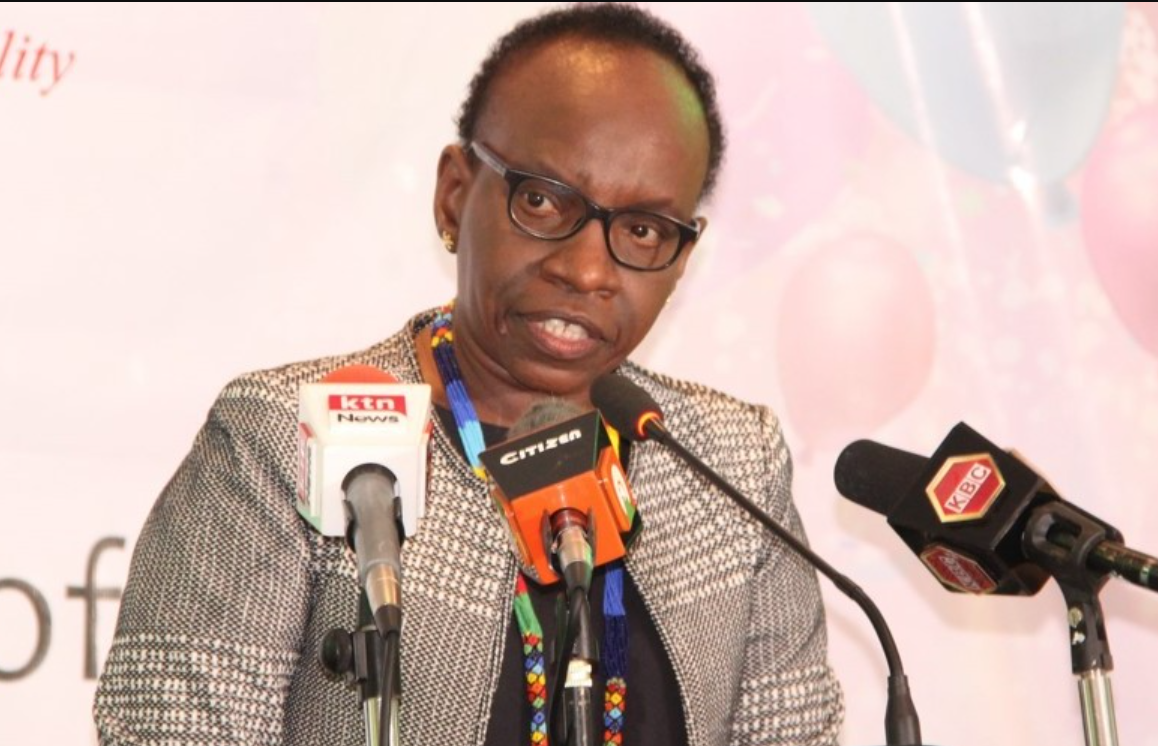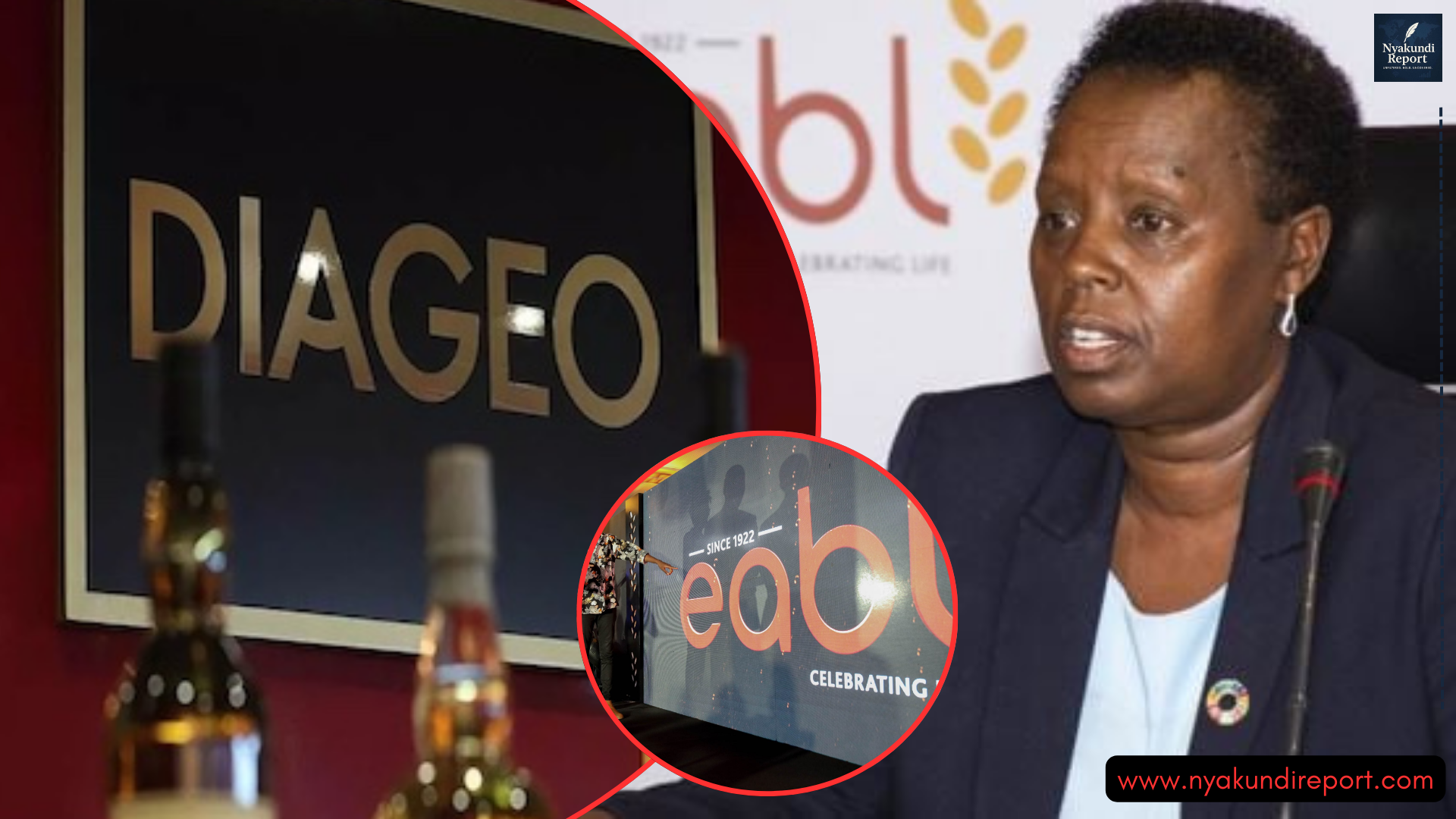The Education Ministry is once again at the center of controversy after Auditor General Nancy Gathungu flagged a suspicious purchase of high-end Apple devices at grossly inflated prices.
Her report exposes how six MacBooks and two iPads were bought at a staggering cost of nearly Ksh4 million, over twice their market value. This blatant irregular procurement is raising eyebrows about corruption and wasteful spending within the State Department of Higher Education.
The public now demands accountability, transparency, and action. How did this happen under the watch of senior officials? And more importantly, who is benefiting?

Auditor General Exposes Irregular Procurement Scandal in Education Ministry
Auditor General Nancy Gathungu’s latest report is damning. She revealed that the State Department of Higher Education purchased six MacBooks for Ksh2,995,920 and two iPads for Ksh920,000.
That translates to Ksh499,320 for each MacBook and Ksh460,000 per iPad. Yet, their quoted market prices stood at Ksh180,000 and Ksh360,000 respectively. This led to an overpricing of over Ksh2.1 million—money that could have paid tuition fees for dozens of university students.
Gathungu stated clearly that this procurement was done without an approved and updated procurement plan. This goes against Regulation 51(2) of the Public Finance Management (National Government) Regulations, 2015. The law requires all procurement to be tied to spending plans and approved budgets.
In her words: “Value for money on the procurements amounting to Ksh2,995,920 and Ksh920,000 in respect of six MacBook laptops and two iPads could not be confirmed.”
She didn’t stop there. Gathungu also disclosed that the Ksh4,014,220 spent on these devices was reported under “non-financial assets” — a suspicious classification that raises more questions than answers. What’s worse, this wasn’t an isolated incident.
Air Tickets and Car Repairs Also Marred by Irregular Procurement
The rot goes deeper. According to Gathungu, the department also violated procurement laws in other areas. She flagged an expenditure of Ksh4,725,467 used for specialized services, including air ticket purchases amounting to Ksh2,465,100.
Shockingly, only two suppliers submitted bids for these services. The law requires at least three quotations for evaluation under Section 106(2)(d) of the Public Procurement and Asset Disposal Act, 2015. This requirement is meant to prevent collusion, price fixing, or awarding tenders to cronies.
No documents were available to justify the selection. The procurement team failed to provide a quotation register, tender opening minutes, or even evaluation reports for audit scrutiny. That’s not all.
The department also broke procurement rules when hiring service providers for car maintenance. According to Gathungu, the providers were single-sourced. Yet they did not meet the legal criteria for direct procurement under Section 103(2) of the same Act.
These irregularities point to a broader pattern of systemic fraud, hidden behind technical jargon and paper trails that don’t exist.
Education Ministry Faces Public Backlash Over Misuse of Funds
Public confidence in the Education Ministry is crumbling fast. In a country where thousands of students lack basic learning materials, the idea that officials spent nearly Ksh500,000 on a single laptop is nothing short of insulting. Kenyan taxpayers are demanding answers.
Why would a government department buy gadgets at twice their market price? Who approved the inflated quotations? And what disciplinary action will be taken?
Gathungu’s report suggests that the rules were either ignored or deliberately bypassed. This is not just a case of bad bookkeeping. It’s a serious matter involving mismanagement of public funds, failure of oversight, and possibly, outright theft.
The people responsible for these procurements must be held accountable. The Education Cabinet Secretary, the Principal Secretary, and the accounting officers in the State Department of Higher Education cannot escape blame.
They are tasked with ensuring that every coin spent delivers value. Instead, they signed off on irregular procurement that cost taxpayers millions. The Directorate of Criminal Investigations (DCI) and the Ethics and Anti-Corruption Commission (EACC) must now step in.
Letting this slide will only encourage more waste and embolden corrupt networks within government ministries.












































